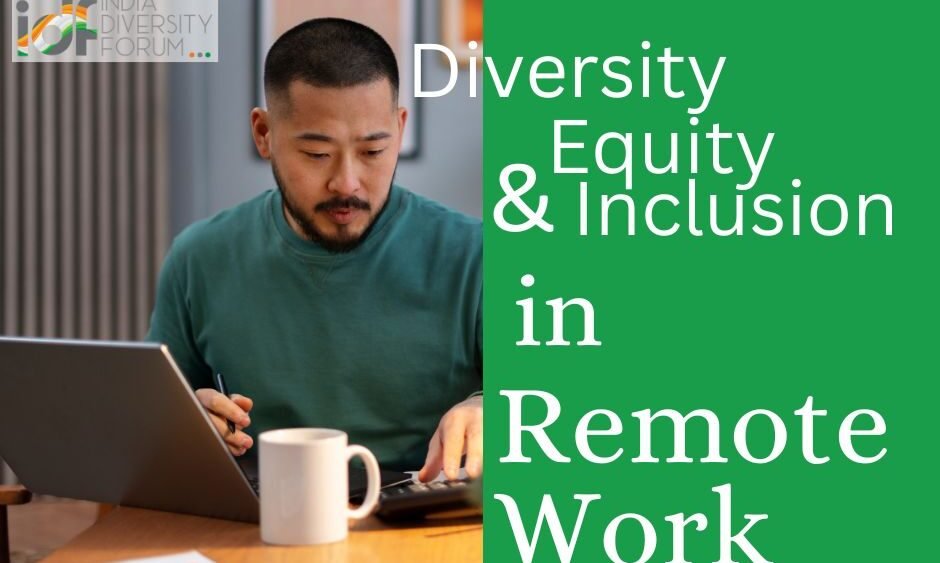The shift towards remote and hybrid work models has transformed workplace dynamics, presenting challenges and opportunities regarding DEI. As organizations navigate this diametric shift, it has become crucial to prioritize DEI efforts. This ensures that all employees feel valued, supported, and able to contribute to their full potential, regardless of location or background.
The Importance of DEI in Remote Work
Diversity, equity, and inclusion are essential in any work environment, but they can be especially important in remote work. When employees are physically separated, it is critical to foster a sense of belonging and ensure equal access to opportunities and resources.
A lack of diversity can result in groupthink, in which a homogeneous group makes decisions without considering alternative viewpoints. This risk is increased when working remotely due to fewer interactions and opportunities for informal networking and idea-sharing.
Remote work can also exacerbate existing inequities in the workplace. The resulting wage gap and limited access to opportunities, limited access to mentorship, lower visibility, and isolation can have long-lasting effects. Therefore, organizations must prioritize DEI in remote work to level the playing field, foster innovation, and ensure all employees feel valued and supported.
Challenges in Promoting DEI in Remote Work
While the benefits of prioritising DEI in remote work are clear, there are also several challenges that organisations must navigate:
- Communication barriers: Remote work could mean communication challenges, particularly with employees working across different time zones.
- Limited face-to-face interaction: Without the ability to interact in person, employees can find it difficult to build meaningful relationships.
- Accessibility issues: Not all employees may have access to the necessary technology, which can create barriers and limit advancement opportunities.
- Cultural differences: Employees from diverse backgrounds may have different communication styles or expectations, leading to misunderstandings or conflicts.
- Unconscious bias: Remote work can make it easier for unconscious biases to creep into decision-making processes, such as hiring, performance evaluations, and promotions.
To overcome these challenges, organizations must take a proactive and comprehensive approach to promoting DEI in remote work environments.
Strategies for Promoting DEI in Remote Work
- Establish clear DEI goals and metrics: to ensure accountability and drive continuous improvement.
- Provide DEI training: to help employees and managers develop cultural competence, recognize unconscious bias, and foster inclusive behaviors.
- Implement inclusive communication practices: that promote equal participation and respect for diverse perspectives.
- Offer mentorship and sponsorship programs: for employees to connect with mentors and sponsors who can offer guidance, support, and advocacy.
- Celebrate diversity and inclusion: through events, recognition programs, and storytelling.
- Ensure equitable access to opportunities: to professional development, networking, and advancement opportunities.
- Foster a culture of belonging: by encouraging employees to share their stories, connect, and support one another.
By implementing these strategies and continuously evaluating and refining their approach, organizations can create a more inclusive and equitable remote work environment that enables all employees to thrive.
Conclusion
Promoting DEI in remote work environments is the right thing to do and makes good business sense. Employees who feel valued, respected, are more engaged, productive, and innovative. Moreover, a D&I workforce is better equipped to understand and serve the needs of a diverse customer base.
Organisations must prioritise DEI as a key component of their overall strategy. This can be done by fostering an inclusive culture and creating equal opportunities for all employees.
Join the India Diversity Forum (IDF) today to connect with like-minded professionals and move towards a more inclusive and equitable workplace. Together, we can shape a future where diversity is celebrated, inclusion is the norm, and equity is the foundation for success.


